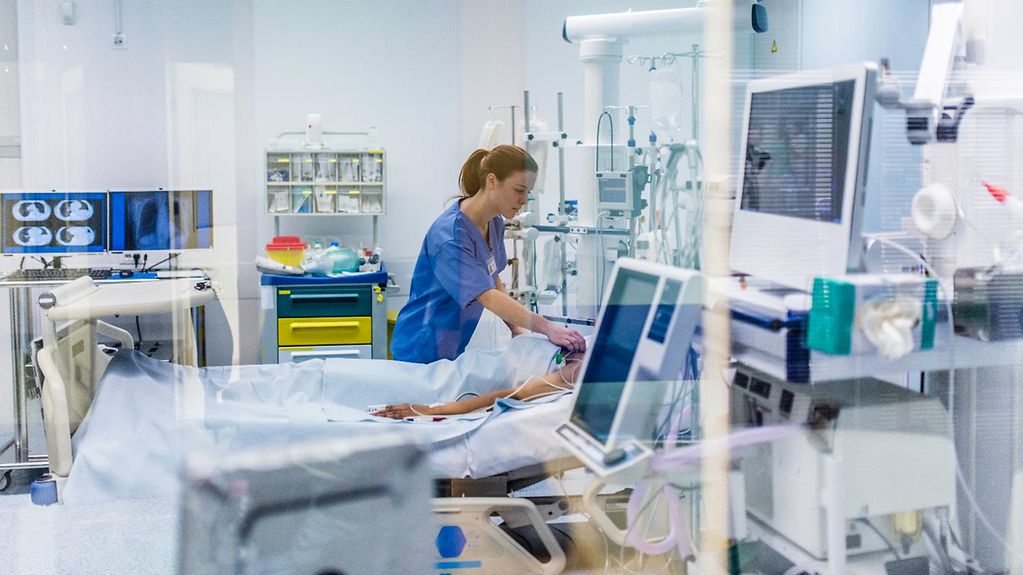COVID-19 Hospital Relief Act
The entire health system is feeling the strain of the corona crisis. Hospital capacities are being expanded, doctors’ practices must also treat COVID-19 patients and nursing facilities must prevent the spread of the virus. The German Bundestag has thus agreed on measures to compensate for loss of earnings and cut red tape.
2 Min. Lesedauer

A nurse in an intensive care unit. "All those who work in the health system need our full support now," declared Federal Health Minister Jens Spahn.
Foto: Getty Images
For hospitals
Hospitals are currently gearing up for rising numbers of COVID-19 patients. The number of beds is being increased and additional intensive care treatment options created. The COVID-19 Hospital Relief Act (Covid19-Krankenhausentlastungsgesetz) now passed by the German Bundestag comprises a number of measures to guarantee the funding of hospitals and ensure their liquidity:
- For non-essential surgery and treatment that has been postponed, hospitals are to receive financial compensation from the liquidity reserve of the health fund. This will be re-financed from the national budget. Until the end of September, hospitals will receive a lump sum payment of 560 euros a day for every bed they keep free. For every additional intensive care bed that hospitals put in place, they will receive a bonus of 50,000 euros.
- Hospitals will receive an additional payment of 50 euros per patient to cover the additional costs, especially of personal protective gear. This provision will apply for a limited period. It can be extended or raised as necessary. The provisional nursing fee will be raised by about 38 euros to 185 euros a day.
This package of measures will strengthen hospitals in financial terms. This is an important precondition for ensuring the availability of health care for the population.
For medical practices
The legislation also contains provisions for out-patient care. Doctors working in practices can expect to receive compensatory payments if they suffer loss of earnings as a result of the COVID-19 pandemic.
At the same time, additional costs incurred as a result of treating COVID-19 patients are to be offset. Against this background the fee distribution scheme is to be modified swiftly. The financing of extraordinary measures, such as setting up "outpatient clinics for patients with fever" is also to be ensured.
For nursing care
The legislation also contains provisions to ensure nursing care and reduce the risk of infection to those in need of care and to all those working in nursing. The strain on nursing facilities and nursing staff is also to be reduced.
The additional financial costs incurred by the pandemic or any loss of income is to be reimbursed through the long-term nursing care insurance. Bureaucratic requirements and the obligation to produce an expert report will be waived for a time. Nursing care insurance schemes will be granted more leeway to help them avoid gaps arising in nursing care coverage for people receiving care at home.
For individuals still in training who are now helping
The Federal Training Promotion Act (Bundesausbildungsförderungsgesetz) is also to be amended. It is to be ensured that young people who are still in training, and who are now actively engaged during the ongoing crisis and making a valuable contribution to easing the strain on the health system, do not suffer any disadvantages relating to their BAföG loans for trainees.